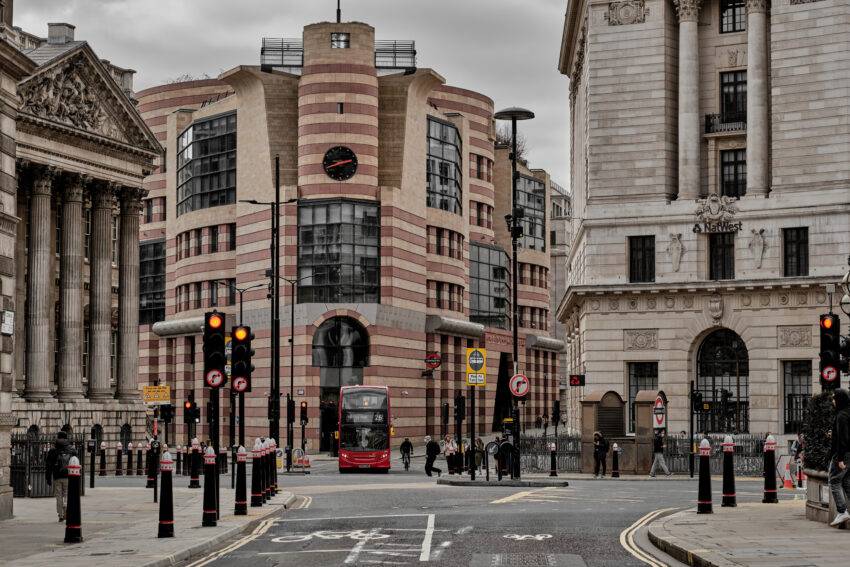
Offices in London have lost almost a fifth of their value over the past year, much more than blocks in most other European countries.
On average, London office values have dropped 17.1 per cent since summer 2022, having fallen in each of the past five quarters, data from BNP Paribas shows.
Commercial property around the world has repriced over the past year or so owing to the sharp increase in interest rates, which has made debt more expensive and forced investors to demand better returns from buildings.
But the declines seen in the capital are greater than those seen in almost every other major European office market, except for Amsterdam, where values have slipped by about 23 per cent year-on-year.
Compared with last summer, office blocks in Berlin and Paris are worth about 15 per cent less now. In Brussels and Frankfurt, office valuations have fallen by only 8 per cent.
Fergus Keane, head of central London investment markets at BNP Paribas Real Estate, said that offices in London had repriced more quickly than most other countries because valuers here were more aggressive with their assumptions.
“[In Europe, valuers] move a bit slower,” he said. “London’s very transparent and valuers, when they do their quarterly valuations, are allowed to value to sentiment as well as looking at hard deals [that have completed]. [Valuers] know that debt is more expensive and so they try to get ahead of it and correct prices much faster.”
Reflecting the high cost of debt and rapidly changing property valuations, investors have been wary of buying London offices this year. In the first six months of 2023, £4.8 billion of office sales were agreed, according to BNP Paribas, 40 per cent less than in the same period of 2022.
Of those deals that have gone through, many have done so for less than what their owners had been hoping to get. Lion Plaza, which sits just around the corner from the Bank of England, sold for £209 million over the summer, £50 million shy of what its German owner, Doric Asset Finance, had been looking for when it was first put up for sale at the end of last year.
Similarly, next to Bank station, One Poultry, at the top of which sits the Coq D’Argent restaurant, is reportedly up for sale for £125 million, a third less than what Seoul’s Hana Alternative Asset Management paid for it five years ago, although Hana has disputed that figure.
Although European office valuations have so far avoided the worst of the repricing, Keane expects that they will eventually catch up to London.
“Office valuations [in London] started correcting nine months before Europe,” he said. “The [European Central Bank] started raising interest rates later than the UK, and so Europe is lagging us. We’re closer to the bottom than Europe so therefore we’re also going to be bouncing back next year before Europe.”
Keane added that the downturn in the London office market, one of the world’s largest and most liquid commercial property markets, has presented a “very rare entry point” for investors.
The cheap pound is already attracting overseas buyers, especially to places such as St James’s and Mayfair, where buildings that rarely come up for sale are doing so. More than 40 per cent of all central London offices that have traded so far this year have been bought by buyers from the Asia Pacific region.
“For a decade it’s been a seller’s market and that’s now flipped, with buyers holding the upper hand, particularly if you’re an all-equity player,” Keane said. “[But] this entry point won’t last long [and] I expect this window of opportunity will be closing this time next year.”
Values in the West End are holding up better than in other parts of London, such as Hammersmith and Canary Wharf, Keane added. That is because tenants are drawn by the salubrious surroundings and the buildings’ smaller floorplates, which are more popular post-lockdown, keeping rents there higher.
Not all buyers are concerned about a building’s rental performance, though. Nick Braybrook, head of London capital markets at Knight Frank, said recently that a number of wealthy investors were buying offices in and around London’s West End in order to impress their rich friends.
“You get people buying offices that are let to BP or someone for 20 years who could probably get a more secure return from buying BP bonds,” Braybrook said. “But telling their billionaire mates that they’ve bought a load of BP bonds probably doesn’t look quite the same as saying that they own the company’s headquarters on St James’s.”